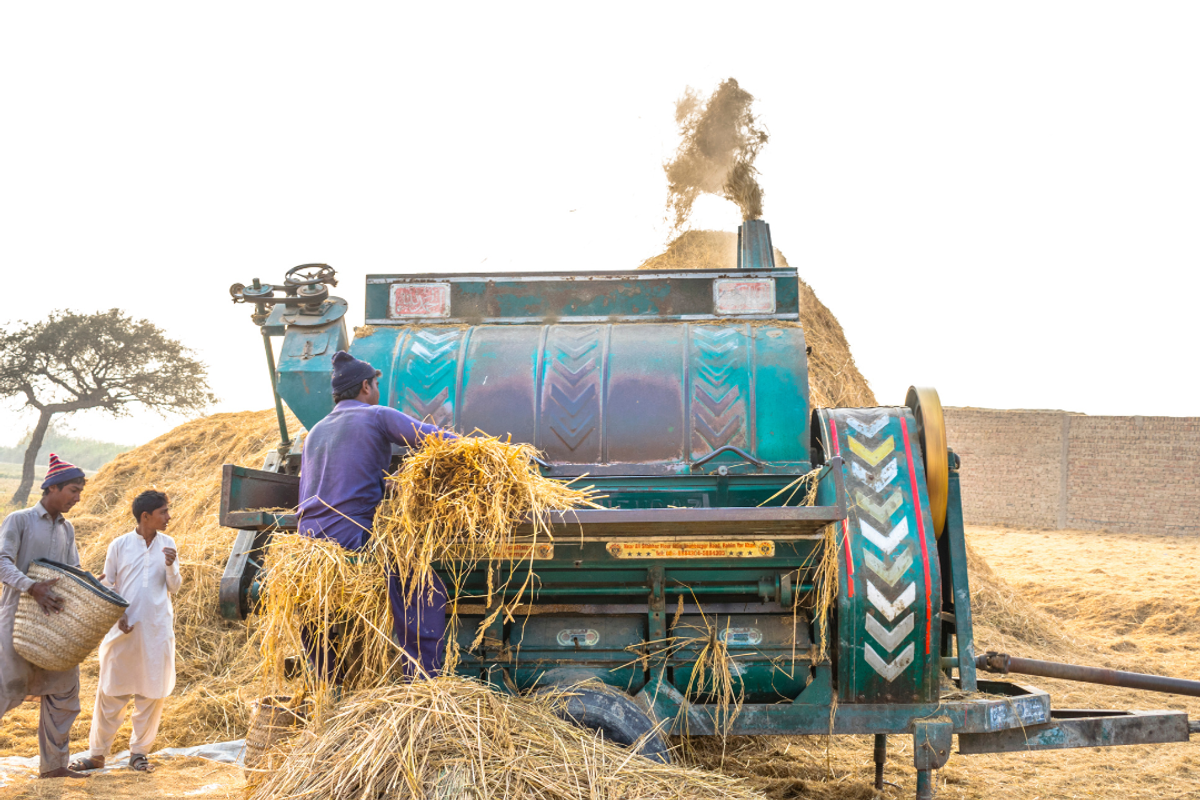Pakistan's Sindh becomes third province to introduce Agriculture Income Tax Bill
The bill will now be presented in the Sindh Assembly

Haris Zamir
Business Editor
Experience of almost 33 years where started the journey of financial journalism from Business Recorder in 1992. From 2006 onwards attached with Television Media worked at Sun Tv, Dawn Tv, Geo Tv and Dunya Tv. During the period also worked as a stringer for Bloomberg for seven years and Dow Jones for five years. Also wrote articles for several highly acclaimed periodicals like the Newsline, Pakistan Gulf Economist and Money Matters (The News publications)

Farmworkers at a farm in Larkana, Sindh
Shutterstock
The cabinet of Pakistan's Sindh province has approved the Agriculture Income Tax Bill for 2025 to be implemented from January 1, aimed at improving collection and fulfilling one of the International Monetary Fund's (IMF) conditions.
The bill, which will now be presented in the Sindh Assembly, was approved by the provincial cabinet in a meeting chaired by Chief Minister Murad Ali Shah.
The bill states that livestock will be exempted from the tax whereas tax adjustment due to natural calamity will also be provided.
The bill also states that that if some agricultural land is not disclosed in the statement, heavy penalties will be imposed.
The Sindh Revenue Board will be responsible for collecting agriculture tax instead of the Federal Board of Revenue.
The meeting decided that the tax on small companies will be 20% and on big companies 28%. Meanwhile, agriculture income of PKR 150 million to PKR 200 million will be taxed at 1%, from PKR 200 million to PKR 250 million around 2%, and from PKR 250 million to PKR 300 million nearly 3%.
For income between PKR 300 million and PKR 350 million, the tax rate will be 4%, from PKR 350 million to PKR 400 million around 6%, from PKR 400 million to PKR 500 million nearly 8%, and from PKR 500 million and above 10%.
Sources told Nukta that participants in the meeting said the federal government should have consulted the Sindh government before agreeing with the IMF to tax agricultural income. Two provinces — Punjab and Khyber Pakhtunkhwa — have already passed similar bills.
The implementation of taxes will make vegetables, rice, wheat and other eatables more expensive.







Comments
See what people are discussing